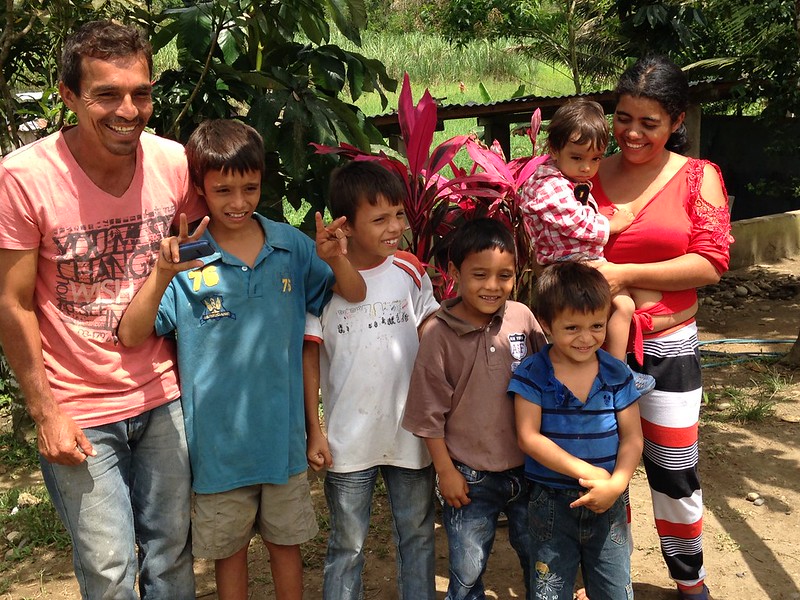Advancing Disability In Ecuador As An Universal Health Coverage Priority

Click here to view this post in Spanish.
In Ecuador, while there have been significant policy advances that recognize persons with disabilities (PWD) as rights holders, many situations of exclusion persist due to conditions of poverty or extreme poverty that affect many PWD, and real access to health for PWD remains unachieved. State-level health coverage strategies are needed to benefit all people in all areas (including sexual and reproductive health) starting early in life, including adolescents with disabilities. This is important because the recognition of persons with disabilities implies that they can access affirmative action measures that lead to the full exercise of their rights and ensure that universal health coverage is achieved and all PWDs have access to the sexual and reproductive health (SRH) care they need and desire.
According to the study “Pregnancy in adolescent women with disabilities, its link to gender-based violence and challenges in human care” conducted in 2017 by UNFPA, CNIG and AECID, reveals that in Ecuador, people with disabilities, especially, women with disabilities are infantilized and do not have access to information in accessible formats, which results in no decision-making capacity over their bodies. They are “expropriated of their rights and their sexuality.”
Eliminating Attitudinal Barriers
Currently, you still find doctors in both the public and private sectors in Ecuador who do not know how to treat a person with a disability and may invalidate his or her ability to make health-related decisions as an adult; our health system still does not have adequate support structures for people who require specialized assistance.
Health professionals must take responsibility and be prepared to communicate on topics of interest, such as sexual and reproductive health, family planning or access to medicines, in a language easy for any person to understand, taking into account that, in everyday life, there are still taboos related to the topic of disability and sexuality. In general, the government only supports the professionals of the National Health System (public sector) with resources. However, continuous sensitization processes are not always carried out, and in the case of health personnel in the private sector, it is not possible to guarantee that they know about it because if they do not have a specific need, then the inclusion of disability simply goes unnoticed. In many cases, it is still the parents or “caregivers” who make health-related decisions for their children or adult-children with disabilities.
Ecuadorian society must change the way it perceives disability in order to eliminate attitudinal barriers such as infantilization against persons with disabilities, which prevents them from exercising their right to decide in a dignified manner due to lack of access to information about their own sexuality or right to sexual and reproductive health care.
Barriers to access were exacerbated under COVID and limited our access to certain medicines and our freedom, impacting our mental health. I think that people with disabilities live in a situation of constant confinement, similar to confinement we faced under COVID. When a PWD like myself goes out on the streets and finds many barriers on the sidewalks where it isn’t even possible to walk or even worse, with inaccessible public transportation, we are denied the right to dignified mobility. So we may choose to not go out and not exercise our right to participate in society.
In my own experience, as a young person with a disability, I always think about what the pro and cons are before going out whenever I get invited to leave my home because many places are not accessible.I always doubt whether I am going or not (if it is about a place I haven’t visited yet) and many times I’d rather stay home.
Disability Can No Longer Go Unnoticed
I ask world leaders to take into account the particular needs of persons with disabilities, many times there is an attempt to generalize within the term “persons with disabilities” and mix women and men, so it is important to remember that women with disabilities face greater vulnerability. Specifically, girls and women with disabilities are 10 times more likely to be abused or raped in the privacy of our own homes, and that is a reality that is also relative challenge to our health; because it involves vulnerable sexual health risks, extensive health care for the victim, and care for the family. Unfortunately, during the pandemic these practices were perpetuated and can no longer go unnoticed.
To achieve real compliance, we must address disability approaches and issues of accessibility as basic conditions, seeking alternatives that benefit all people by “making easy what is already difficult.” It can be hard to understand what health issues are, whether diseases, diagnoses, or treatments, due to the many technical terms used by our health providers, but when simple words and an everyday vocabulary are used, this helps everyone, including PWD understand. In addition, it is necessary to ensure that healthcare providers have disability-mainstreaming training in their academic curriculum, in all specialties. With this, future doctors and other healthcare providers will have the tools to implement a more humane and inclusive care.
We must all promote a true coexistence, involving all PWDs so they can make informed decisions on issues that are of interest to them, and collaborate to build public policies that value diversity. For accessibility to be guaranteed, physical spaces for care, print and digital communications, and knowledge sharing of information adapted in diverse formats must be created and readapted to different types of disabilities, and to emphasis that health professionals must become familiar with the particular needs of people with disabilities to provide them with adequate and accessible care, as individualized as possible.




